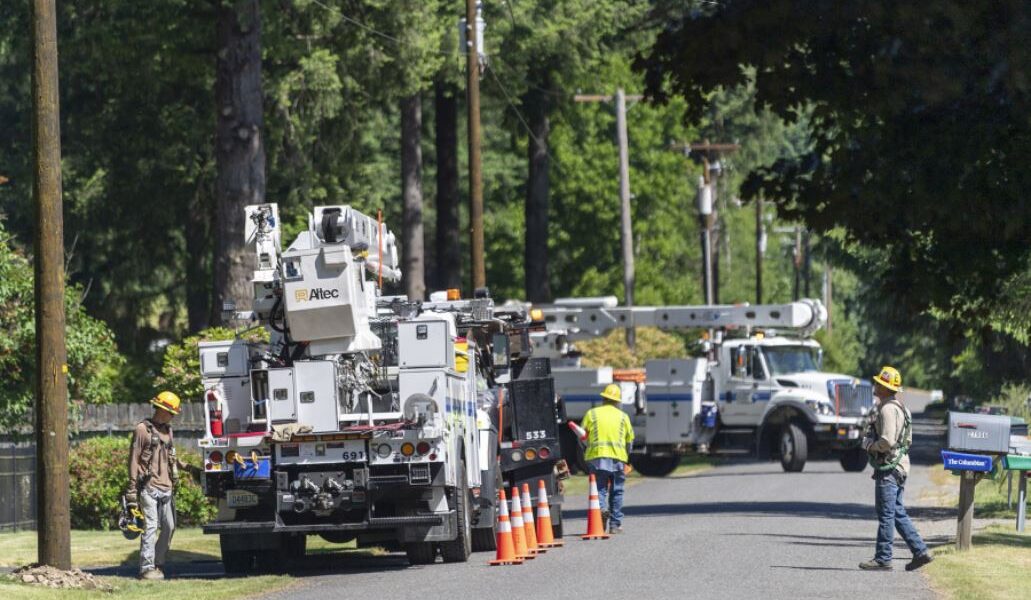
“Overall demand for electricity has increased as Clark County’s population has grown. Clark Public Utilities saw energy use hit a 23-year high last winter. With rising summer temperatures and greater reliance on air conditioners, Clark Public Utilities now is bracing for energy use to peak again this summer.
“Generally, energy consumption in January has been steadily increasing since 2021,” Clark Public Utilities spokesman Dameon Pesanti said. “We anticipate loads will climb in July and August when people begin running air conditioners consistently.” This winter was fairly mild. That’s to be expected during an El Niño weather pattern, said Clinton Rocky, meteorologist for the National Weather Service in Portland. The average hourly loads for January, February, and March 2023 hit 660 MW, while this winter averaged 643 MW.
January’s storm was the outlier, Panti said. When temperatures plunged well below freezing for nearly a week early this year, demand reached a new peak at 1144 MW/hr, about 200 MW more than budgeted. In August, demand climbed to 1012 MW as the Vancouver Portland area recorded one of the hottest months on record.
The weather is predicting temperatures this summer will be near average. “We’ll have some warm spots in there, but we’re probably not looking at overly hot, hot conditions,” Rocky said. Weather doesn’t always behave as anticipated, however. “Mother Nature can often play a wildcard,” Rocky said. The notorious heat dome that drove Southwest Washington temperatures to 116° in 2022 wasn’t something that could’ve been predicted more than a few weeks in advance.
“We’re prepared for heat waves that can cause demand to spike,” Pesanti said. Historically, energy use at Clark Public Utilities peaked in the winter, but now, air conditioning has become essential for most residents and drives up demand in the summer as well. “These high summer loads pose a challenge for us and utilities across the Pacific Northwest,” Panti said.
The region’s hydropower dams generate less power in late summer just as residents begin heavy use of their air conditioners. “Those conditions can make power very expensive in the wholesale energy markets where we and other utilities by electricity when demand for it is high,” Pesanti said. The utility is prioritizing energy conservation as energy consumption grows.
“Working with customers to help them use less continues to be the most powerful tool. We have to keep rates low and avoid costly investments in new generation,” Pesanti said.” (The Columbian, Sarah Wolf 05.22.24)